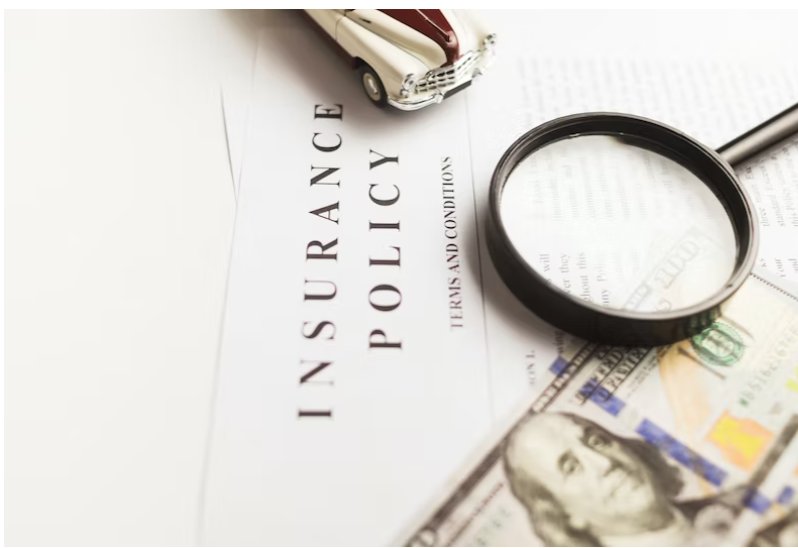Why New York auto and home insurance rates are rising so much in 2023

Even though inflation has been dropping nationwide, the effects of it will likely linger for quite some time.
While the country may see inflation continue to drop by the end of the year, according to economists, it could be quite some time until we see relief in our pocketbooks.
Just look at what is happening with home and auto insurance rates this year. Policy holders across the country — and, especially in higher cost of living states such as New York, New Jersey, and California — are seeing significant increases for both their home and auto insurances through at least 2023, if not longer.
The reason? Inflation; specifically, higher inflation within certain economic segments which drive insurance rates.
How we got here
Alex Anderson, agency owner of the Anderson Agency in Rockville Centre, said in late 2022 and continuing into 2023, industrywide, insurance companies who issue homeowners and auto insurance started filing sharp rate increases and implemented tighter underwriting restrictions.
While there are a multitude of factors which come into play, the industry is essentially seeing higher claim payouts for historically similar incidents. This is something which both current auto and property insurance rate increases have in common. Anderson believes the persistence of this segmented inflation is at the heart of increasing insurance rates.
In hindsight, one of the first signs that inflation challenges were on the horizon for insurance companies happened when both the automobile market and construction industry began experiencing supply chain issues, Anderson said.
While those supply issues, for example, affected car prices, car repair prices, and construction prices fairly quickly, insurance companies didn’t typically start feeling the brunt of it immediately. The reason for this is because home and auto insurance carriers don’t start to realize higher claim payouts until they actually begin paying those claims of their policyholders.
Anderson explained this can take months, if not a year or more. When coupled with the phenomenon of working from home, it can make it extremely tricky to project claim payouts on a whole in real time, he said.
Over time as these higher claim payouts persist, insurance companies begin to realize that they may not be charging the correct amount of premium in return for the true cost of the coverage they are affording to their customers, Anderson said.
With both home and auto insurance, these increased building costs, including labor, played a factor in those premium costs, as Anderson noted that material and labor costs compared to pre-2020 seem to be “significantly higher.” Anderson also said coastal exposure on Long Island in conjunction with higher claims payouts has led to rising costs from the insurance companies’ own insurance, known as reinsurance.
How insurance companies approach the problem
Anderson, who has been in the industry for a decade and has an office in Rockville Centre, said there are really two main levers that insurance companies can pull when they themselves face higher costs and lower profits: Tightening up underwriting and increasing rates.
Underwriting: This is the process an insurance company goes through to decide if someone should be offered a policy by weighing past claims, credit profiles, driving records (auto insurance) and other risks associated with the potential customer. Because insurance companies need to recover from inflation, Anderson said he expects carriers to be much more selective than they have been in the past when it comes to issuing new policies.
Rate increases: Insurance companies in New York are regulated by the State Department of Financial Services. They approve rate increases but they also won’t let insurance companies take on too much of a rate decrease, either. Each company has their rates individually approved by the state, Anderson said.
But overall, homeowners insurance as well as personal insurance, like auto, is being most impacted by the rate increases, Anderson said.
From 2022 to 2023, car insurance rates have gone up 14 percent across the nation with the national average cost for full coverage for a car at $2,014. In New York, that average is $3,139, according to Bankrate.
A study from Policygenius showed that New York home insurance premiums increased 8 percent from 2021 to 2022, so across those two data points, we can see where this trend is heading.
There’s a benefit to having someone you can get straightforward advice from during periods of uncertainty, Anderson said.
“When someone gives me their business, it means a lot to me personally,” he said. “People have options in life, and who you use for insurance is one of those choices, so when someone decides to do business with you, you really learn to appreciate that. Additionally, as an insurance agent, your clients allow a window into their lives. And in these discussions, as an agent, you become incredibly close with the details of your clients’ lives.That trust matters to me.”
Want to learn more about ways to save money on your insurance? You can contact Alex Anderson here.
Coming in May
The LI Herald will talk with Anderson about all of the ways you can save money on your auto insurance and how he approaches the process with current and prospective clients.






